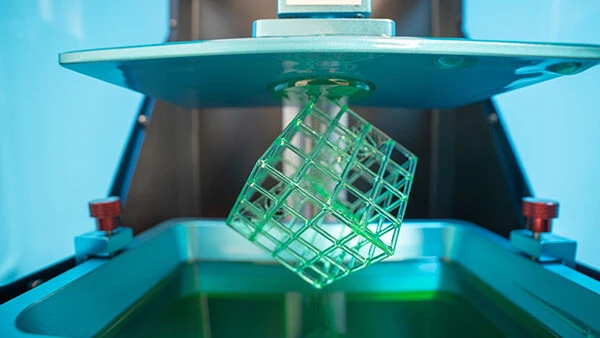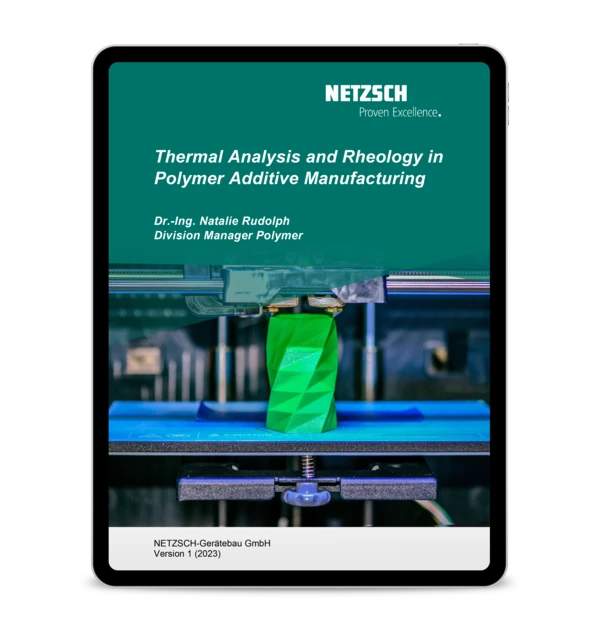
12.02.2020 by Gabriele Stock
How UV-light Exposure Times Affect Component Properties in Additive Manufacturing
Additive Manufacturing (AM) has been around for several years. The main application for a long time was prototyping in the early stages of product development. Recently, new technologies like Digital Light Synthesis (DLS) are shaking up the AM sector. Using DLS and a two-stage dual-curing process, 3D printing is now being considered for mass production of parts since it has become considerably faster and the final product shows improved mechanical characteristics.
The 3D print material Rigid Polyurethane or RPU70 is tough and has the ability to withstand heat. Products with this material are manufactured in a two-stage dual-curing process. A green product is generated using photo-polymerization in layers within the system applying a UV-light source reflected via Digital Light Processing as planar exposure source. Because of a range of materials with mechanical properties similar to conventional polymers and the smooth part surfaces, DLS demonstrates high potential to be used as a technology for final part (series) production. To record the first, light-induced photo-polymerization reaction of the material, a Photo-differential scanning calorimeter (Photo-DSC) is used. Then, standard DSC measurements are performed with the UV-cured RPU 70 sample. In order to analyze the influence of different exposure times on the final component properties, a tensile test is performed to acquire tensile strengths and elongation at break values. Photo-DSC measurements performed with different exposure times followed by thermal curing show the dependence of the thermal cross-linking reaction on the previously formed network, made in the first process step during photo-polymerization. The trend was validated with standard DSC measurements, showing a strong correlation between thermal cross-linking in the second process step and exposure time settings for parts produced with DLS. Read the complete article: Science Direct

FREE E-Book
Thermal Analysis and Rheology in Polymer Additive Manufacturing
Discover the secrets behind AM's game-changing capabilities! Our newly released ebook delves deep into the heart of AM, unveiling the power of reliable material characterization techniques, specifically thermal analysis and rheology.